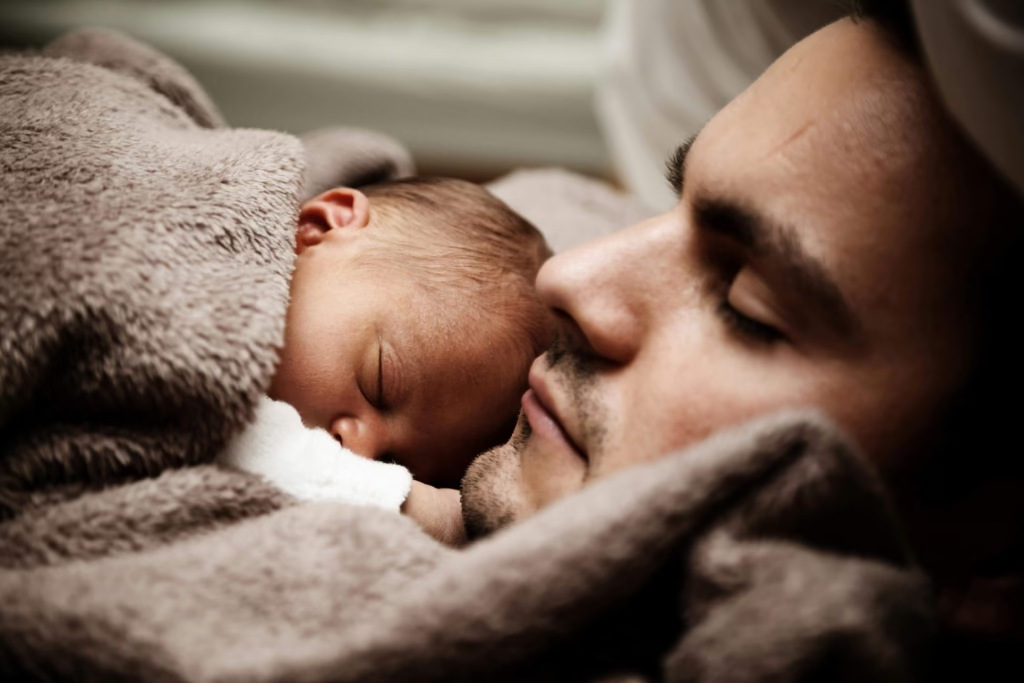Introduction
Did you know that approximately 1 in 8 couples in the United States struggles with infertility? Among the various fertility treatments available, egg donation has become an increasingly vital option. Over 17,000 egg donation cycles are performed annually in the US alone, according to the Society for Assisted Reproductive Technology (SART).
The egg donation process offers hope to many who cannot use their own eggs due to medical conditions, age-related fertility decline, or genetic concerns. Whether you’re considering becoming an egg donor or exploring egg donation as a path to parenthood, understanding what really happens during this journey is essential for proper preparation and peace of mind.
This comprehensive guide walks you through each stage of the egg donation process, from initial screening to post-donation care.
What Is the Egg Donation Process?
The egg donation process involves a healthy woman (donor) providing some of her eggs (oocytes) to another person or couple (recipients) who cannot produce viable eggs on their own. The donated eggs are fertilized in a laboratory setting through in vitro fertilization (IVF) and the resulting embryos are transferred to either the intended mother or a gestational carrier.
This process represents a meaningful convergence of medical science and human compassion. It allows individuals to help others build families while potentially receiving compensation for their time and discomfort.
Unlike sperm donation, egg donation is a more involved medical procedure requiring hormone stimulation, monitoring, and a minor surgical procedure to retrieve the eggs. The entire egg donation process typically spans 3-4 months from initial application to egg retrieval. However, the donor’s active participation phase usually lasts just 3-4 weeks.
The process represents a meaningful convergence of medical science and human compassion, allowing individuals to help others build families while potentially receiving compensation for their time and discomfort.
Why It Matters
For donors, this process provides an opportunity to make a life-changing impact.Many donors report profound emotional satisfaction knowing they’ve helped create families. Additionally, the process offers financial compensation that can help young women with educational expenses or other financial goals.
The egg donation process holds profound significance for numerous reasons that extend beyond simply helping someone conceive. For recipients—whether heterosexual couples facing female infertility, same-sex male couples, single men, or women with genetic concerns—donor eggs may represent their only chance to experience pregnancy and have a genetically-related child (through the male partner’s sperm).
For those who have experienced premature ovarian failure, cancer treatments that damaged their ovaries, or age-related fertility decline, the egg donation process offers a path forward when other fertility treatments have failed. Research published in Fertility and Sterility shows that success rates using donor eggs remain relatively stable regardless of the recipient’s age, with pregnancy rates averaging 50-60% per transfer—significantly higher than IVF with own eggs for women over 40.
For donors, the process provides an opportunity to make a life-changing impact. Many donors report profound emotional satisfaction knowing they’ve helped create families. The process also offers financial compensation that can help young women with educational expenses or other financial goals.
Understanding the egg donation process matters because it impacts the physical and emotional wellbeing of all involved parties.It has lifelong implications for the families created through this technology.
The Process
Understanding exactly what happens during the egg donation process helps both donors and recipients prepare properly. Here’s a detailed breakdown of the typical steps:
Initial Screening and Application
- Potential donors complete comprehensive applications detailing medical history, personal information, and motivation
- Initial screening includes height, weight, BMI assessment, and basic health evaluation
- Most agencies and clinics require donors to be between 21-32 years old and have regular menstrual cycles
Medical and Psychological Evaluation
- Complete physical examination including pelvic exam and ultrasound to assess ovarian reserve
- Blood tests to screen for infectious diseases, genetic disorders, and hormone levels
- Psychological evaluation to ensure donors understand the implications of egg donation
- Genetic counseling to identify any hereditary conditions
Matching and Legal Contracts
- Donor profiles are created and shared with potential recipients (either anonymously or with identifying information depending on the arrangement)
- Once matched, both parties sign legal contracts outlining rights, responsibilities, and compensation
- Contracts typically address future contact, anonymity preferences, and what happens with any unused embryos
Cycle Synchronization and Medication
- Donors begin birth control pills to synchronize their cycle with the recipient’s (if fresh transfer is planned)
- Donors receive detailed medication schedules and training on self-administering injections
- Stimulation phase begins with daily hormone injections (gonadotropins) to stimulate multiple egg development
- Regular monitoring through blood tests and transvaginal ultrasounds (typically every 2-3 days)
Egg Retrieval Procedure
- Once follicles reach optimal size (usually after 10-12 days of stimulation), a trigger shot is administered
- Retrieval occurs 36 hours after trigger shot under sedation
- Transvaginal ultrasound-guided needle aspirates eggs from follicles (procedure takes 20-30 minutes)
- Typically 10-20 eggs are retrieved in a successful donation cycle
Post-Retrieval Care and Compensation
- Donors rest for 1-2 hours in recovery before going home (must have someone drive them)
- Most donors return to normal activities within 24-48 hours
- Compensation is typically provided after completion of the retrieval (ranges from $5,000-$10,000 in the US)
- Follow-up appointment occurs 1-2 weeks after retrieval to ensure proper recovery
Benefits and Considerations
Benefits for Recipients
The egg donation process offers recipients the chance to experience pregnancy and childbirth when using their own eggs isn’t possible. Success rates are significantly higher with donor eggs—research from the Centers for Disease Control and Prevention shows live birth rates of approximately 55% per transfer with donor eggs compared to around 20% with own eggs for women over 40. Recipients also benefit from comprehensive genetic and health screening of donors, reducing the risk of certain hereditary conditions.
Benefits for Donors
Beyond financial compensation, many donors report psychological benefits from helping others create families. A study in Human Reproduction found that 80% of donors expressed satisfaction with their decision to donate eggs. The process also includes free comprehensive health screening that might identify previously unknown health issues.
Physical Considerations
Donors should be aware of potential side effects from hormone medications, including mood swings, bloating, and discomfort. The most serious risk is ovarian hyperstimulation syndrome (OHSS), which occurs in approximately 1-2% of donation cycles. Recovery typically takes 1-2 weeks, with most donors returning to normal activities within days after retrieval.
Emotional Considerations
Both donors and recipients should prepare for emotional complexity. Recipients may experience grief over genetic disconnection or anxiety about the medical procedures. Donors might face unexpected feelings about genetic offspring or questions from family members. Professional counseling is strongly recommended throughout the egg donation process.
Common Misconceptions
Egg donation depletes a woman’s egg supply
Fact: Women are born with all the eggs they’ll ever have (approximately 1-2 million), with only 400-500 released during their reproductive years. The donation process simply utilizes eggs that would naturally degenerate that month.
Egg donors are genetically related to the child and have parental rights
Fact: While donors contribute genetic material, legally they are not considered parents. Comprehensive contracts ensure donors relinquish all rights to eggs and any resulting children.
The egg donation process is extremely painful
Fact: Most donors report minimal discomfort during the process. The retrieval procedure is performed under sedation, and post-retrieval discomfort is typically manageable with over-the-counter pain medication.
Anyone can become an egg donor
Fact: The screening process is highly selective. According to the American Society for Reproductive Medicine, only about 5-10% of applicants are accepted as egg donors after completing the rigorous screening process.
Egg donation causes infertility or early menopause
Fact: No scientific evidence suggests that egg donation affects future fertility. The hormones used mimic natural processes and temporary effects typically resolve within weeks after retrieval.
Legal and Ethical Aspects
The legal landscape surrounding the egg donation process varies significantly by location. In the United States, regulation occurs primarily at the state level, creating a patchwork of laws. California and New York have established comprehensive legal frameworks protecting all parties, while some states have minimal regulation.
Internationally, the variation is even more dramatic. Countries like Canada prohibit payment for egg donation beyond expense reimbursement, while others like Italy and Germany have strict limitations or prohibitions on the practice altogether.
Key legal considerations include:
- Donor compensation (legal in the US but amounts vary by region)
- Anonymity requirements (some countries mandate open-identity donation)
- Insurance coverage for complications
- Disposition of any unused embryos
- Future contact arrangements between donors, recipients, and offspring
Ethically, the egg donation process raises important questions about informed consent, appropriate compensation, and the welfare of resulting children. Medical professionals must balance helping create families while ensuring donors fully understand long-term implications of their decision.
Support and Resources
For Egg Donors
- Resolve (resolve.org) – National infertility association with resources for donors
- We Are Egg Donors (weareeggdonors.com) – Peer support group for past and current egg donors
- Professional counseling services specializing in third-party reproduction
- Your donor agency’s support coordinator
For Recipients
- American Society for Reproductive Medicine (asrm.org) – Professional guidelines and patient resources
- Parents Via Egg Donation (pved.org) – Support network for families created through egg donation
- Fertility clinics often have dedicated mental health professionals specializing in donor conception
- Books like “Having Your Baby Through Egg Donation” by Ellen Sarasohn Glazer
- Educational resources about talking to children about their origins
When selecting an egg donation agency or fertility clinic, look for:
- ASRM/SART membership and compliance with guidelines
- Clear communication about costs and policies
- Comprehensive screening processes
- Strong support services for both donors and recipients
- Positive reviews and testimonials from previous participants
Conclusion
The egg donation process represents a remarkable collaboration between donors, recipients, and medical professionals that has helped thousands build their families. Understanding what really happens during egg donation—from initial screening through retrieval and beyond—helps all parties prepare physically, emotionally, and logistically for this journey.
Whether you’re considering becoming a donor or pursuing egg donation as a path to parenthood, thorough research and preparation are essential. The process involves significant medical procedures, emotional considerations, and legal agreements, but participants who enter with realistic expectations and proper support generally report positive experiences.
As reproductive technology continues to advance, the egg donation process will likely become even more refined, but its core purpose remains constant: helping create families when traditional paths to parenthood aren’t possible. By approaching this journey with knowledge, support, and clear communication, participants can navigate the egg donation process with confidence.
FAQs
How long does the entire egg donation process take from application to egg retrieval?
The complete egg donation process typically takes 3-4 months from initial application to egg retrieval. However, the active medical portion involving medications and monitoring usually spans just 2-3 weeks.
What are the primary medical risks associated with the egg donation process?
The main medical risks include ovarian hyperstimulation syndrome (OHSS), infection, bleeding, or complications from anesthesia during retrieval. Serious complications are rare, occurring in less than 1% of donation cycles.
Can I donate eggs if I have an IUD or am on birth control?
Yes, you can become an egg donor while using hormonal contraception. However, you may need to discontinue certain methods temporarily during the donation cycle. IUDs typically don’t interfere with the egg donation process.
Does egg donation affect future fertility?
Current research shows no evidence that participating in the egg donation process affects a woman’s future fertility. The medications used stimulate eggs that would naturally degenerate that month anyway.
How are egg donors compensated, and is it taxable income?
Egg donor compensation varies by location and agency, typically ranging from $5,000-$10,000 in the United States. This compensation is considered taxable income in most jurisdictions and should be reported accordingly.
Can recipients meet or know the identity of their egg donor?
This depends on the arrangement. Options range from completely anonymous donation to known donation where parties meet, to open-identity programs where the child can contact the donor upon reaching adulthood. All parties must agree to the level of contact before proceeding with the egg donation process.







